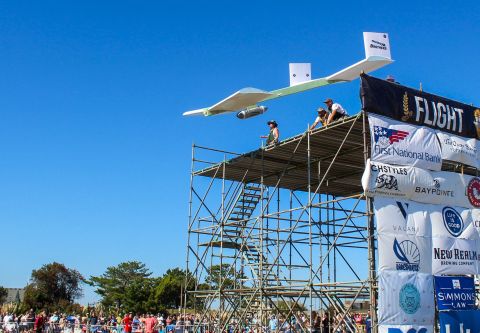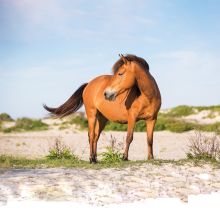
Bob White of Back Beach Wild Horse Tours isn’t one to get emotional or talk about his feelings. He moved to the Outer Banks unexpectedly and fell into the business when he left the Marine Corps and his dad invited him to come to the Outer Banks and check out the horses.
“I’m not a touchy-feely kind of guy. I’m an ex-jarhead,” he jokes.
But there is one thing he can describe, and that’s the feeling that you get when you see a wild horse on the beaches of Corolla.
“It’s just awesome. There’s no other word to describe it,” Bob says. “If you’re driving down the beach and the horse is standing on the dune with the sun setting behind it, it’s just … awesome.”
So awesome that he’s spent almost two decades not only running a renowned wild horse tour business, but also serving as vice chairman of the board of the Corolla Wild Horse Fund, helping to ensure that the horses’ 500-year legacy lives on. The Corolla Wild Horse Fund (CWHF) is a longstanding 501(c)3 nonprofit charity whose mission is to protect, conserve and responsibly manage the herd of Banker wild horses roaming freely on the northernmost Currituck Outer Banks. The fund also promotes the continued preservation n of this land as a permanent sanctuary for horses, which are designated as the N.C. State Horse and defined as a cultural treasure by the State of North Carolina.
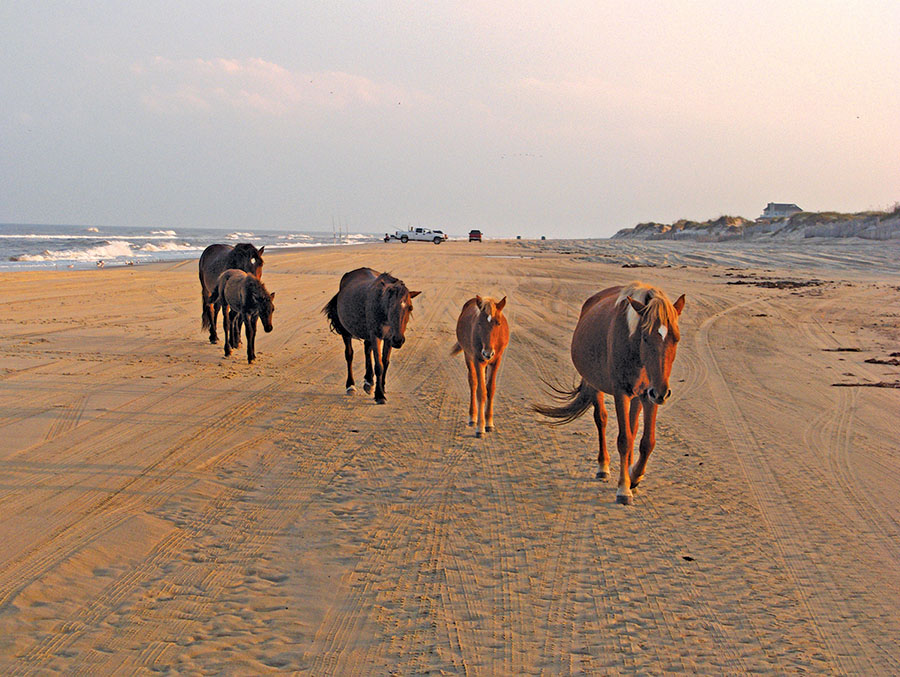
While he says he’s not a sentimental guy, anyone who goes from serving and protecting his fellow human beings to serving and protecting wild animals has quite the heart of gold in our books.
I asked him why is it important to him to protect these majestic creatures?
“It just is,” Bob says. “It’s a great cause. I mean, this is the only place that I’m aware of that has these free-roaming animals that were brought here and left behind by Spanish settlers … and they have been able to flourish for 500 years. So their story is worth investing in and protecting.”
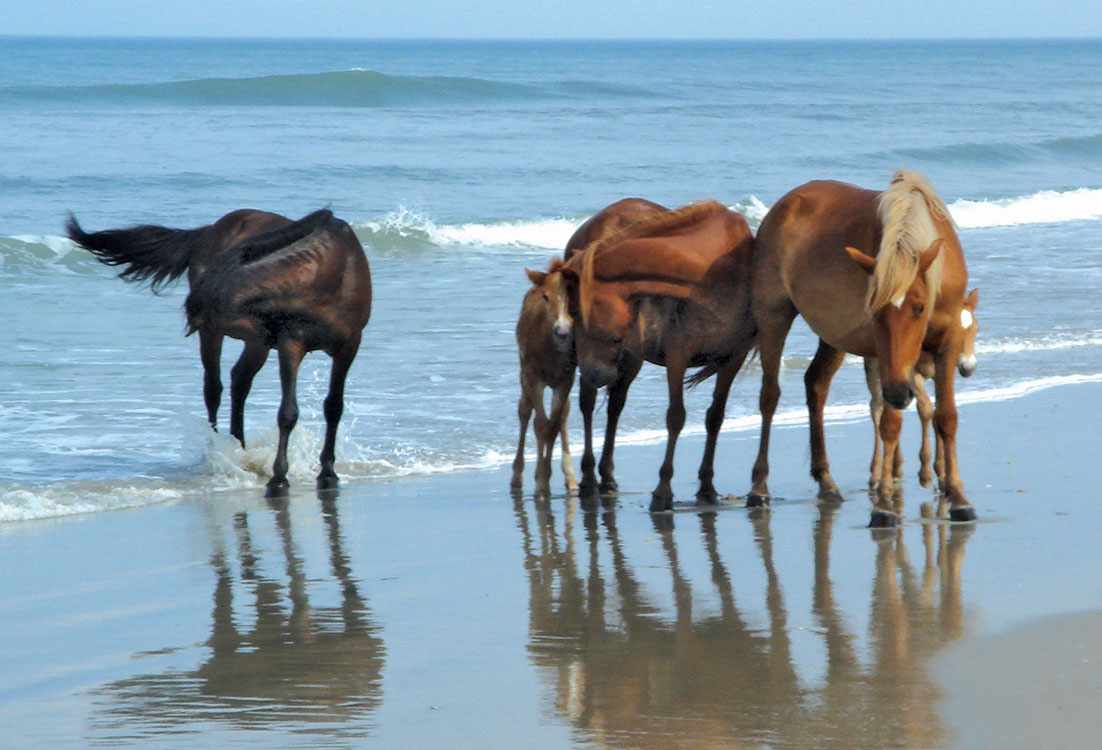
This year Bob and the rest of the CWHF board are on a mission to take that protection to a new level in the form of habitat preservation. Over the past several years, many of the Banker wild horses have died or been killed for multiple reasons, from natural causes to interaction with humans.
“One of the things that we want to do is put together a strategy to buy land,” Bob says. “And by that I mean we’ve identified a corridor of land that the horses frequent, and the Corolla Wild Horse Fund is actively engaged in finding donors to contribute to buying that land.”
Bob and the rest of the Corolla Wild Horse Fund board are currently working on informational pamphlets for the general public to find donors interested in helping them purchase this land to ensure the wild horses have a safe place to roam and to keep roads and development from causing harm to these animals. And while they will depend on large donations from some, Bob shares that small donations from many are just as important.

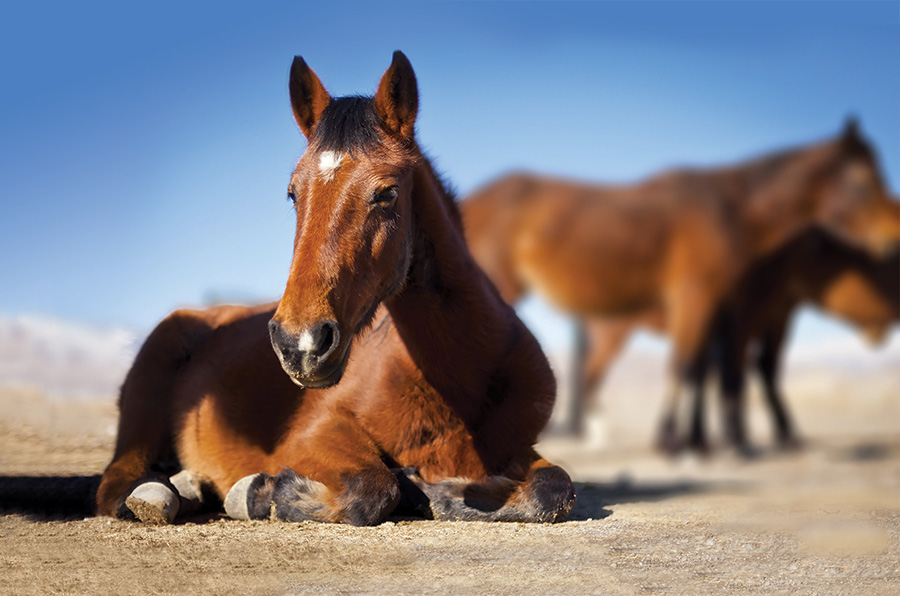
“One of the things I’m doing with my business is asking for $5 donations on our website, and we’re matching the donations that come in,” Bob says.
Online users can go to Back Beach Wild Horse Tours website (seewildhorses.com) and find a donation tab. At the end of the year, Bob will match the amount of donations.
The total acreage the board is looking to acquire will be in the hundreds to even 1,000 acres. As Bob explains, the cost is high because land is expensive, especially in a resort village on the ocean, so they are looking at $10 to $20 million. “But you can do that five bucks at a time,” he says.
Once you book a tour and donate the optional $5, that’s where your fun begins. When you embark on an adventure with Back Beach Wild Horse Tours, you’ll experience an exhilarating open-air, safari-style experience aboard spacious 4x4 trucks, accommodating up to 16 passengers. Over the course of two immersive hours, you’ll encounter the iconic wild horses and be immersed in the coastal ambiance while tour guides tell you all about the rich history, folklore and intriguing facts about not only wild horses, but also dolphins, osprey and even wild boars.
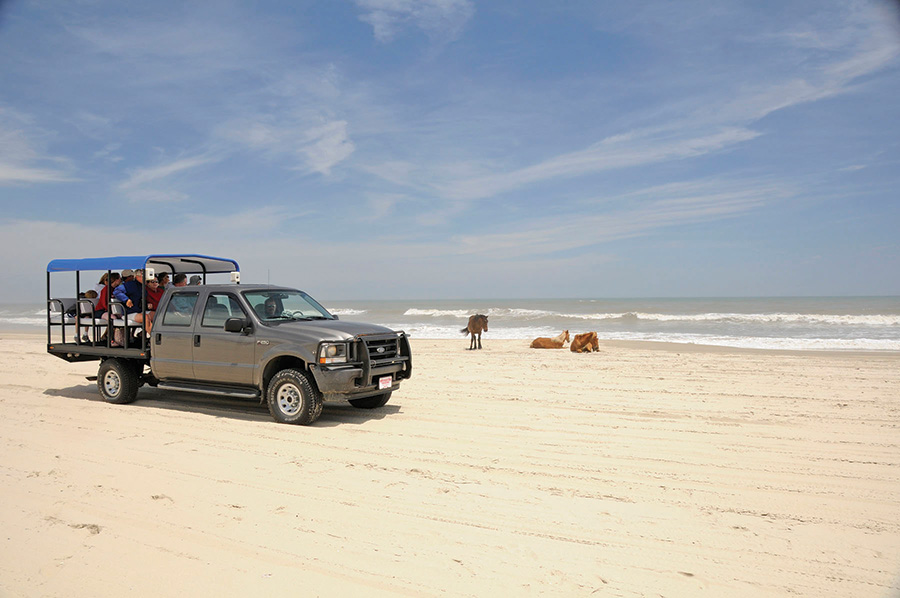
The guides also educate about safety protocols around the wild horses, such as maintaining a lawful 50-foot distance from them, refraining from feeding them and knowing the local driving regulations in the 4x4 area should you try to navigate the area yourself.
“Our main thing is to entertain and educate at the same time,” Bob says. “It’s much more than a horse tour.”
Back Beach Wild Horse Tours
(252) 453-6141
817 B Ocean Trail, Corolla
seewildhorses.com



 Maggie Miles is originally from the Outer Banks. She moved to Palm Springs in 2023 to work as an on-call reporter for the New York Times. Her portfolio includes contributions to The Times, BBC, MSN and many other media outlets. During her career, she has focused on a wide range of topics, including workplace corruption, gun violence, social justice, the environment, arts, health and wellness, travel and in-depth profiles of notable people and businesses.
Maggie Miles is originally from the Outer Banks. She moved to Palm Springs in 2023 to work as an on-call reporter for the New York Times. Her portfolio includes contributions to The Times, BBC, MSN and many other media outlets. During her career, she has focused on a wide range of topics, including workplace corruption, gun violence, social justice, the environment, arts, health and wellness, travel and in-depth profiles of notable people and businesses.


